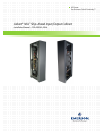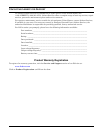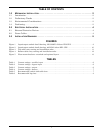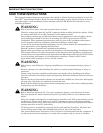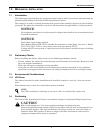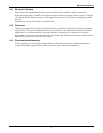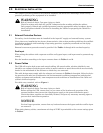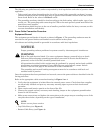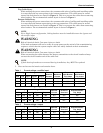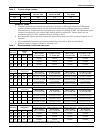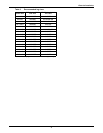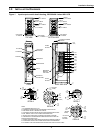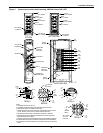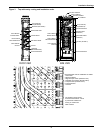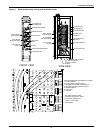
Electrical Installation
5
The following are guidelines only and are superseded by local regulations and codes of practice where
applicable:
• Take special care when determining the size of the neutral cable (grounded conductor), because
current circulating on the neutral cable may be greater than nominal current in the case of non-
linear loads. Refer to the values in Tables 2 and 3.
• The grounding conductor should be sized according to the fault rating, cable lengths, type of pro-
tection, etc. The grounding cable connecting the UPS to the main ground system must follow the
most direct route possible.
• Consideration should be given to the use of smaller, paralleled cables for heavy currents, as this
can ease installation considerably.
2.2.1 Power Cable Connection Procedure
Equipment Ground
The equipment ground busbar is located as shown in Figure 1. The grounding conductor must be
connected to the ground busbar and bonded to each cabinet in the system.
All cabinets and cabling should be grounded in accordance with local regulations.
NOTICE
Proper grounding reduces problems in systems caused by electromagnetic interference.
Once the equipment has been positioned and secured, connect the power cables as described in the fol-
lowing procedure.
Refer to the appropriate cable connection drawing in Figure 3 or 4.
1. Verify that the equipment is isolated from its external power source. Check that these supplies
are electrically isolated and post any necessary warning signs to prevent their inadvertent
operation.
2. Open exterior and interior panels on the front of the I/O.
3. Connect the ground and any necessary main bonding jumper to the equipment ground busbar
located in the I/O section.
4. Make power connections and tighten the connections to the proper torque according to one of the
two procedures below, depending on the type of installation:
• Top Cable Entry (see Figure 3)
• Bottom Cable Entry (see Figure 4)
!
WARNING
Risk of fire and electrical shock. Can cause equipment damage, personal injury or death.
Failure to follow adequate grounding procedures can result in electric shock hazard to
personnel, or the risk of fire, should a ground fault occur.
All operations described in this section must be performed by properly trained and qualified
electricians or technical personnel. If any difficulties are encountered, contact Liebert
Services. See the back page of this manual for contact information.
The grounding and neutral bonding arrangement must be in accordance with local and
national codes of practice.
NOTE
Ensure correct phase rotation.



